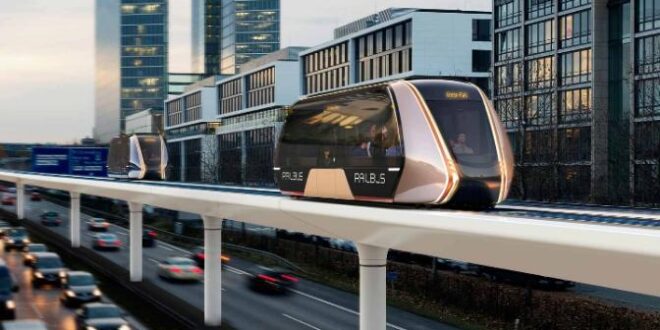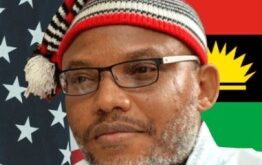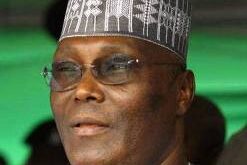By Christian Iyeumame Agadaga
Going by the Abraham Maslow’s hierarchy of needs, the third and the fourth needs which depicts ‘Love And Belonging, Safety And Security’ in the pyramid of man’s five physiological needs shows that increase for trips into the urban cities in most countries has the ability to foster socialization and connect people from different races and class and upgrade their general safety.
The need for a more decent, fast, affordable and convenient mode of transportation have brought industry experts, government policy shapers and indeed concerned members of the public all under one “school of thought” to brainstorm a better way out. The solution to this, seems to be the emergence of the Rail Bus or better described as Elevated Rail Bus (ERB).
But what is a Rail Bus? From the coinage of the words ‘Rail’ and ‘Bus’, a ‘Rail Bus’ by implication is a mix of transport technology in which a simple, less fanciful public bus is design and constructed but moves on a well laid out rail line system using hybrid energy of electric and compressed natural gas (CNG) technology as its propellant carrying large numbers of persons in it.
The hybrid energy facility tends to archive two main goals of metropolitan public transportation, which are net-zero carbon dioxide (CO2) Emissions and improved air quality.
Rail bus are becoming a trend any fast growing city should emulate and Port Harcourt City in Rivers State of Nigeria should be of no exception. Port Harcourt City prides itself as a hub and headquarters of the oil and gas business in Nigeria with multi-national oil & gas companies receiving expatriates from all over the globe into the city at regular intervals, most of them come in with their families and for sake of exploring the tourism potentials of the city, for shopping and other corporate engagements.
There is a need to move from one part of the city to another coupled with movements of the locals. This action could constitute traffic grid locks, high carbon emission into the atmosphere from cars exhaust pipes which contribute to global warming, nonetheless when the road is jam-packed with cars and people, it is difficult to meets the days schedule.
All these and more would not be a concern if about 70% of those on the road are confined into one safe, convenient, fast and economic friendly technology called the rail bus.
Three other factors contributing to high in flocks of persons, mostly adults into Port Harcourt city are establishment and upgrading of tertiary institutions, increase in religious centers and increase in the programs of the Niger Delta Development Commission (NDDC).
Upgrade of Tretrary Instututions:
Years ago, the state government under the watch of former Governor, Mr. Rotimi Chibuike Amaechi saw reason to send an Executive bill to the Rivers State House of Assembly, for the upgrade of the then College of Education Port Harcourt to a University status, the bill was debated upon by members of the House and consequently was successfully passed as a law.
There after the institution assumed full-fledged university status and was renamed Ignatius Ajuru University. This action by the government have since opened up the city further as more adult population have enrolled for several degree awarding academic programs of the school.
Students and lecturers of this institution commute to and from school on week days in large numbers either using. private cars, salon taxi or fossil fuel buses. These movements most times cause traffic grid locks and excessive carbon-two which is not safe for humans, a rail bus will make movement a lot more safer, cheaper and decent for them.
In same vein, the immediate past administration of Governor (Mr.) Ezenwo Nyesom Wike thought it wise to also annex the Rivers State University into three distant campuses within communities in Etche, Emohua and Ahoada East local government areas respectively and ever since this adjustment was made, there has also been an increase in population to and from Port Harcourt metropolis to these localities.
It is also worthy of note that same government of Mr. Wike also upgraded the school of Arts and Basic studies Rumoula, Port Harcourt to a polytechnic status to accommodate more students via newer accredited programs and of course here again a rail bus could be the transport solution to and from the school.
Increase In Religious Centers
It is not in doubt that Nigerians are religious and those living in the city of Port Harcourt are no exception. Almost all mega Christian denominations have either a branch or headquarters of their worship centers in the city of Port Harcourt because the indigenes here are friendly, peaceful and to a large extent politically and religiously tolerant, not forgetting also the Muslim (Islamic Religion).
Precisely Fridays and Sundays, worshipers troop out in large numbers to give reverence to God, but the big question as it concerns this discuss, is through what means of transportation do they convey themselves from their homes to worship centers? Over 95% aside those in the riverine areas commute via road and these days, roads are heavily locked in with private combustible cars, tricycles, motorcycles, bicycles, and small buses, making the city jam-packed, noisy and exposing commuters to high risk of road accidents most of which can cause fatalities in form of injury or death.
However, if the city is properly planed and rail bus is adopted as a major source of public transportation these risk factors would either be eliminated or grossly reduced.
Increase In Programs of the Niger Delta Development Commission (NDDC):
President Olusegun Obasanjo’s Government in year 2000 founded the NDDC after several years of agitations arising from impoverishment of the people in the region. The core mandate of the commission as gazetted by the Federal Government of Nigeria includes, facilitating the rapid, even and sustainable development of the Niger Delta into a region that is economically prosperous, socially stable, ecologically regenerative and politically peaceful.
Going by its core mandate, the commission since inception has put in efforts to fulfil the purpose of its establishment. In fact this year 2024, over N300,000,000,000.00 ($210m) was approved in budget to execute projects and programs for the commission.
The number of persons who have been employed and consulted to ensure those projects and programs are duely implemented by the management board of the commission for the region, would most certainly mix up with the locals to get their jobs done, but through what means of transportation are they expected to move in executing their jobs?
The contemporary modes of transportation may be available but is it efficient, cost friendly and safe? Also going by the removal of the petrol subsidy by the current government of President Asiwaju Bola Tinubu which has further increased the price of transportation per head for Nigerians, all these and more indicates that a rail bus is right on time to reduce such costs for Nigerians in terms of public transportation.
Mr Agadaga sent in this piece from Port Harcourt

 PH Mundial – Port Harcourt Online Newspaper News Across The Region
PH Mundial – Port Harcourt Online Newspaper News Across The Region





